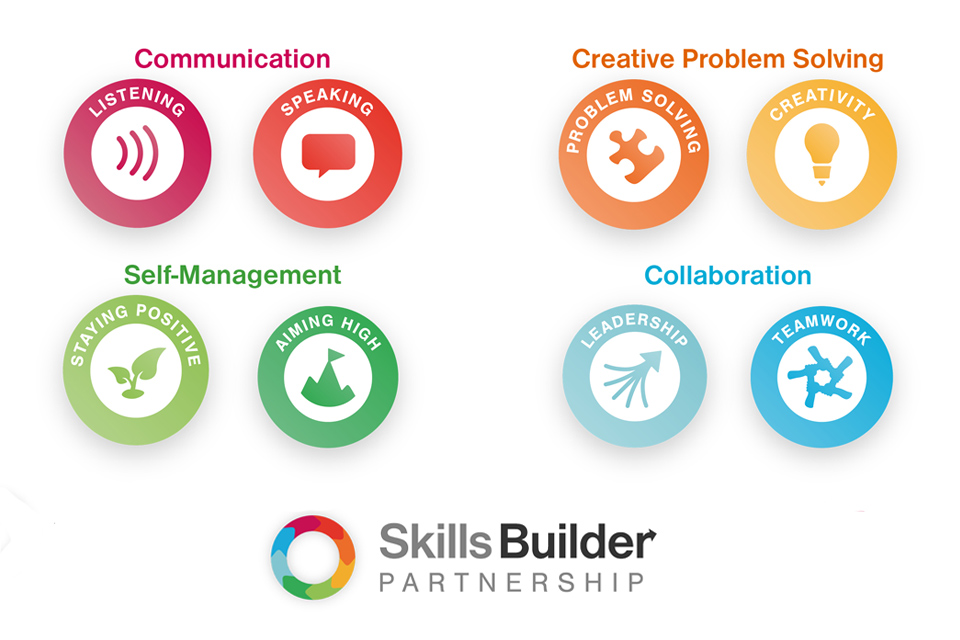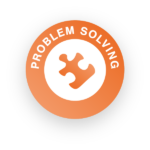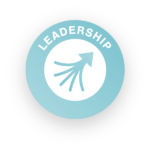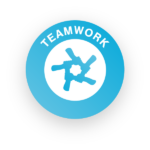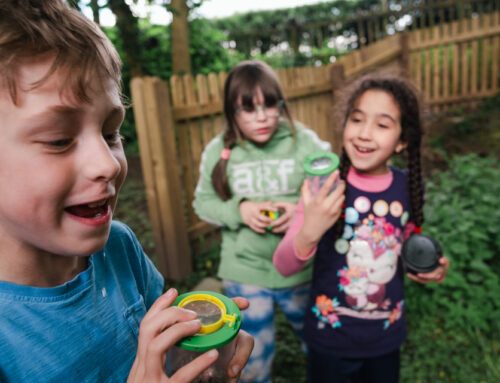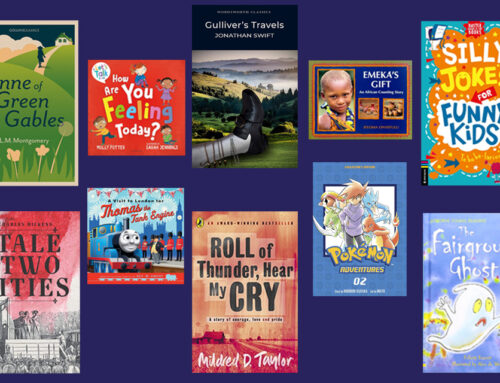Many of Potential Plus UK’s blogs and events carry Skills Builder logos – but what exactly is Skills Builder, how do you use it and why is it important to the development of children and young people?
Skills Builder is a framework which helps children and young people to develop essential life skills for success in the 21st century. The Skills Builder Partnership has identified eight skills: Listening, Speaking, Problem Solving, Creativity, Staying Positive, Aiming High, Leadership and Teamwork, which research has shown are essential in supporting young people in promoting their social and emotional wellbeing, learning and academic outcomes and careers and opportunities. They are core transferable skills which underpin success at every stage of life and are essential tools that children and young people should, and are able to, learn and develop.
The Skills Builder framework helps children and young people to understand their existing skills, practise them in different settings, learn how to develop those skills further and to monitor their progress. Full details of the 16 steps in each of these skills can be found on the Skills Builder website www.skillsbuilder.org/universal-framework/
Potential Plus UK and Skills Builder
For several years, Potential Plus UK has been working in partnership with The Skills Builder Partnership to highlight these eight skills to our community. Skills Builder skills have been incorporated by us into in-person and online events and signposted in our blogs to offer children and young people the opportunity to develop their abilities in the key areas identified by the Skills Builder network. While originally created for use by schools with input from future employers, Skills Builder is now a global movement of employers, educators and impact organisations, last year alone supporting more than 2.3 million individuals to build essential skills.
Building Skills at Home
Skills Builder has been working with organisations such as Potential Plus UK to grow and develop. They work collaboratively and listen to feedback and over recent years have placed a focus on developing their direct offer to parents and carers. As well as frequent reference to parents throughout the site, there is a dedicated Parent/Carer area now where you can explore how the resources and applications that are on offer can be used directly at home.
The key to using the Skills Builder Framework is the term “build”. Each of the eight skills develops a person’s abilities by building on previous experience through a 16 step ladder for each skill. By familiarising yourself with the Skills Builder framework it is possible to spot opportunities to incorporate these skills into your everyday family life – as well as in specific measurable activities.
Introducing the 8 Essential Skills
Communication
Listening & Speaking Skills
Listening Skills – The ability to listen critically to others and understand information and the influence and reasoning behind it. https://www.skillsbuilder.org/universal-framework/listening
“They just never listen!” How many times have you thought that about someone? The listening aspect of Skills Builder teaches children and young people how to listen effectively. Listening is more than simply hearing what is said. To really listen requires real understanding and to understand you need to ask questions of yourself and of others.
The Listening skills ladder covers paying attention and remembering as you listen to others; showing through your body language, summarising and questioning that you are listening; being aware of how you are influenced by the tone and language of others; and learning to listen critically so that you can spot bias, evaluate ideas, and be objective.
Speaking Skills – Learning how to talk to people to communicate information or ideas effectively and engagingly https://www.skillsbuilder.org/universal-framework/speaking
We’ve all heard people who talk for a long time without ever getting to the point or watched politicians hold a masterclass in redirecting a conversation to what they want to talk about and never answering the question. For many children, having to present information in a classroom situation, stand up for what they believe in or talk socially to people they don’t know well can create severe anxiety.
On the Speaking skills ladder, children learn how to communicate effectively with others – whether talking to friends, adults they know or in wider settings. It focuses on speaking clearly to those you know and then to those you don’t know. It moves onto learning how to discuss your points clearly with logic, appropriate language, tone and body language and how to speak engagingly with examples, facts, expressions and gestures. It considers how you should adapt what you are saying to your listener’s responses and how to speak influentially.
Creative Problem Solving
Problem Solving & Creativity Skills
Creativity doesn’t just mean being good at art and Problem Solving doesn’t just mean being good at maths; these skills are an important part of every aspect of our lives. Children with high ability can spark ideas, demand answers to questions and seek solutions to problems in everything they do – to the point where sometimes parents wish there was an off-switch! However, being highly intelligent doesn’t always mean that you are highly creative. Children with high learning potential can need support to develop their creative abilities and to learn to see things from a different perspective. You can find out more about the characteristics of creative people in this blog: https://www.verywellmind.com/characteristics-of-creative-people-2795488
Problem Solving Skills – The ability to complete tasks, explore problems, find solutions, analyse and solve complex situations or challenges. https://www.skillsbuilder.org/universal-framework/problem-solving
While many people may associate problem solving with puzzles or technology, the tools required to problem solve are something that can be applied to any situation. The Problem Solving skills ladder helps children learn how to follow instructions, to complete tasks and to ask for help or extra information. They learn to explore the cause and effect of problems which don’t have simple solutions and to consider, evaluate and theorise a number of options before learning how to carry out their strategic plans and assess their success.
Creativity Skills – The use of imagination to generate and innovate new and effective ideas and to support others to do the same. https://www.skillsbuilder.org/universal-framework/creativity
The Creativity skills ladder focuses on building confidence in your creativity; helping you to move from making minor improvements, through development of ideas using tools like mind mapping and questioning, to enjoying new stimuli and experiences which help you to see things from different perspectives, learning to innovate, and supporting others in their creativity.
One or both of these Skills Builder elements can be found at all of our in-person events. In fact, if you get to the end of a session and don’t think you have flexed those Problem Solving or Creativity muscles at any stage, you should ask yourself why not!
Self-Management
Staying Positive & Aiming High Skills
Staying Positive Skills – The ability to manage your own emotions effectively, overcome setbacks, achieve goals and motivate others positively to do the same. https://www.skillsbuilder.org/universal-framework/staying-positive
The stresses of the last few years have made children and adults alike slightly more anxious and likely to view things negatively. Those who have coped best have called on reserves of resilience, preserved their optimism and appreciated the ‘haves’ rather than the ‘have nots’ of the situation. Learning how to develop such positivity and resilience is a key skill that children of high ability need to acquire.
Potential Plus UK events often offer young people some content or situations that they are not immediately familiar with, or asks them to engage in an activity that they usually do their best to avoid. Many children of high ability miss out on facing challenge in this way and their automatic reaction can be to object or to want to drop out of things. Learning how to reframe things with a positive slant, to see a positive way forward or to self-regulate, are valuable life skills, particularly essential for children with a perfectionistic leaning or those who actively avoid risk and challenge.
The Staying Positive skills ladder helps equip young people to identify and manage their positive and negative emotions effectively, stay calm and remain motivated, identify positive opportunities and adapt plans, manage risks and encourage and motivate others.
Aiming High Skills – The ability to work effectively, set clear goals, create plans, develop strategies to achieve them https://www.skillsbuilder.org/universal-framework/aiming-high
A child with high learning potential often has great ambitions which can vary from working for Nintendo to going to Mars! Whatever their passion, the skills on the Aiming High ladder will teach them how to plan effectively, prioritise tasks and set and achieve short and long-term goals in their personal development and in their work.
Resource Links (Potential Plus UK Blogs)
Collaboration
Leadership & Teamwork Skills
Leadership Skills – Understanding the emotions of yourself and others and supporting, encouraging, managing and motivating others towards a shared goal https://www.skillsbuilder.org/universal-framework/leadership
One day it could be your child who is running a major corporation, leading a fantastic scientific team to make a major breakthrough or even being prime minister! For some gifted children those are realistic goals. However, leadership isn’t just about filling top level positions. Learning more about leadership skills helps to develop empathy and organisational skills, while learning to manage group discussions or deal with disagreements are useful skills for anyone who has to work in a team. Recognising your strengths and weaknesses and those of others can help everyone to develop, support and motivate each other working towards a shared goal.
Teamwork Skills – Learning how to work cooperatively and well with others, contributing towards the achievement of a shared goal https://www.skillsbuilder.org/universal-framework/teamwork
Perhaps one of the hardest skills for a young child with high learning potential to learn can be teamwork. Many children don’t relate well to their age peers academically and it can be difficult for them to learn to work with a group of children – at their pace, at their level, without dominating the group or being rejected by them.
The Teamwork skills ladder helps bright children and young people learn how to behave and communicate appropriately within a team. They learn to respect and value the opinions and backgrounds of other people while recognising their strengths and weaknesses, develop their social skills, make contributions and take responsibility, manage conflict and influence improvements within the team and learn to evaluate when the team needs to bring in outside expertise.
Conclusion
The Skills Builder Framework is intended for and is being used by learners of all ages. Of course, the earlier a child starts working towards learning those skills, the easier it is for them to master them. However, these are skills for life that it is never too late to learn, so we would encourage parents to consider which areas within the framework they might also like to work on! Many organisations are now using the framework as part of their formal appraisal and personal development systems.
When you are working with Skills Builder don’t expect linear progression through the ladders. It is perfectly possible for someone to demonstrate strong level 12, 13 and 14 skills in one aspect but to struggle with, say, steps 0, 1 and 2. Skills Builder also recognises that those with additional needs might find increased difficulty mastering some of the skills or steps and so have produced an Expanded Framework which breaks down each step even further to assist with goal setting and progression.
About the Author: Olivia Smith: Potential Plus UK’s Events Coordinator and Skills Builder Lead
After completing a Masters’ degree in Engineering, Olivia has spent all of her working life in education, much of it as a maths teacher. She trained with Potential Plus UK to carry out educational assessments and to deliver workshops for teachers and parents before taking on the role of Events Coordinator in 2018. Olivia has two children with high learning potential.
About the Author: Geraldine Glover: Potential Plus UK Member Engagement Officer
Geraldine is a Chartered Information Professional with a background in editorial work and information science. She is the mother of two children with high learning potential.

